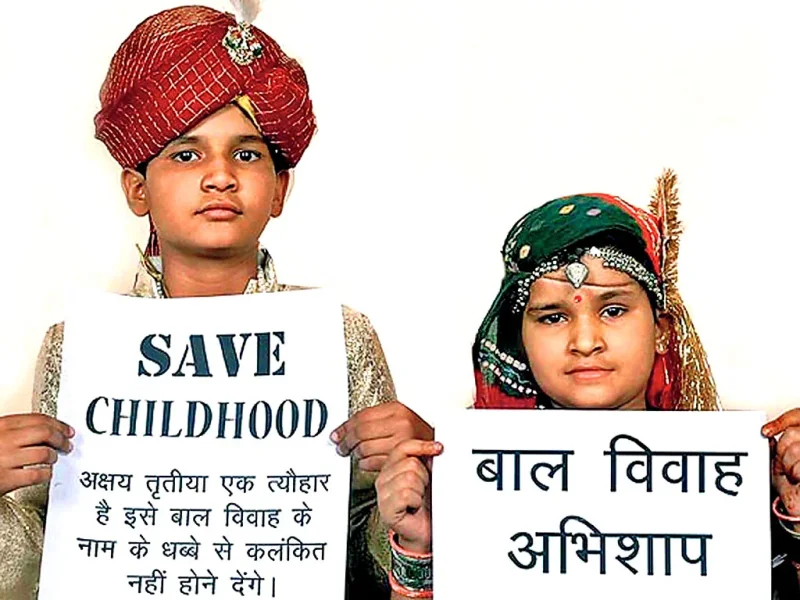prasad1
Active member
Shanti Dhakad of Madhya Pradesh’s Raisen district got married when she was 13. Six years later, her husband died in an accident, forcing the illiterate Dhakad into manual labour to raise her three children.
Thousands of kilometres away, Leelabati Shaw, now in her late twenties, was forced to work as a maid in Kolkata after losing her husband when she was 18.
"Life is tough for a teenage widow. Tracking eyes and harassment are common,” said Shaw, who lost her 11-year-old son last year.

Shanti and Leelabati are among the nearly 4,50,000 across the country who lost their spouse after an underage marriage.
Uttar Pradesh leads the list, followed by West Bengal, Bihar and Madhya Pradesh, an analysis of 2011 census figures by an NGO Vikas Samvad shows.
The report says that nearly 80,000 children in UP have lost their spouse or are separated or divorced from them, followed by West Bengal at 39,792, Bihar at 29,536 and Madhya Pradesh at 29,441. Rajasthan and Madhya Pradesh are home to the largest number of people wed below the legal age – 18 for women and 21 for men – with Madhya Pradesh home to nearly 9 lakh such children.
India is home to one-third of the all underage brides worldwide, according to a recent report by Unicef. Most of these weddings are shrouded in secrecy and performed in mass ceremonies around the sacred annual Hindu event of Akshaya Tritiya or Akha Teej. This year's event will be held next week.
A deep-rooted social acceptance of such practices, coupled with loopholes in the law has trumped authorities trying to crack down on perpetrators, fuelling a vicious cycle of malnutrition, poor health and ignorance.
"There is a loophole in the Prohibition of Child Marriage Act. It does not declare child marriages illegal, but leaves an option that the girl can keep it alive and the marriage can be 'revived' after the girl turns 18. Since there is a window of the girl's consent, in many cases police can't take action against those responsible for marrying off children," said Debasish Banerjee, chief of the Kolkata chapter of the Human Rights Law network.
Many of these women are vulnerable. Once widowed or separated, they are socially ostracised and often become subject to sexual or other violence within the home or outside, said women and child rights activist Kumud Singh.
Widowed before they?re old enough to marry, life is a battle for these girls

